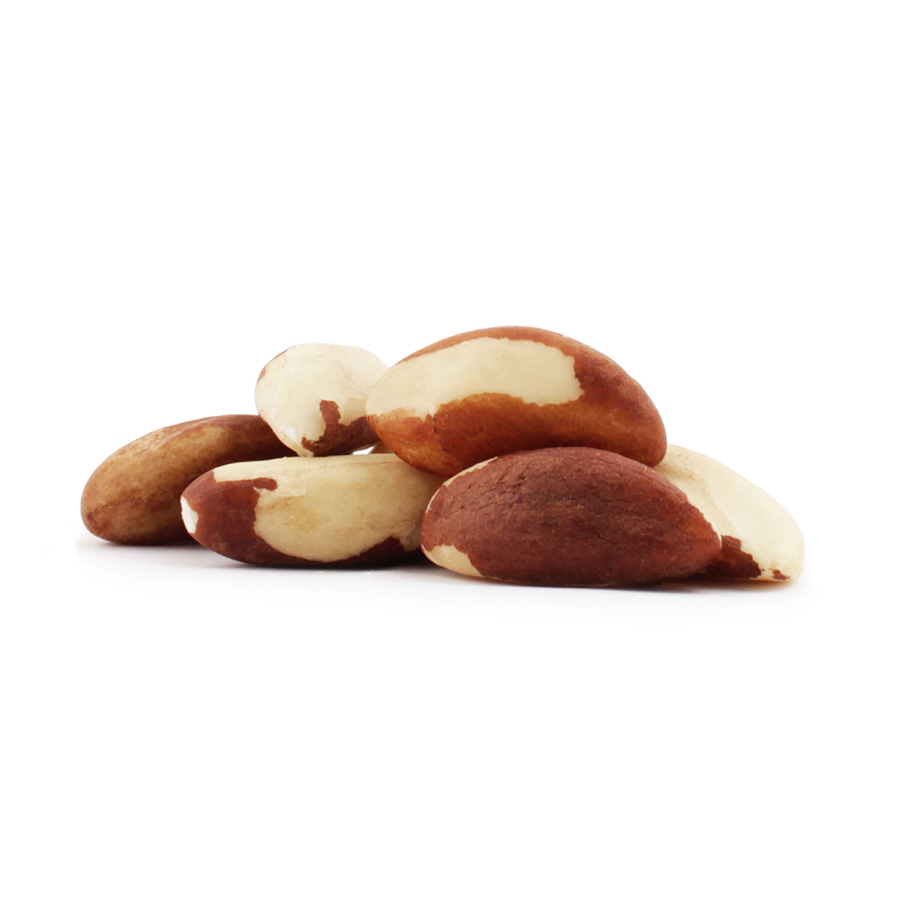The Brazil nut (Bertholletia excelsa) is a South American tree in the family Lecythidaceae, and also the name of the tree’s commercially harvested edible seeds.
Brazil nuts are 14% protein, 12% carbohydrate, and 66% fat by weight; 85% of their calories come from fat, and a 100 gram amount provides 656 total calories. The fat components are 23% saturated, 38% monounsaturated, and 32% polyunsaturated. Due to their high polyunsaturated fat content, primarily omega-6 fatty acids, shelled Brazil nuts may quickly become rancid.
Nutritionally, Brazil nuts are an excellent source (> 19% of the Daily Value, DV) of dietary fiber (30% DV) and various vitamins and dietary minerals. A 100 gram amount (75% of one cup) of Brazil nuts contains rich content of thiamin (54% DV), vitamin E (38% DV), magnesium (106% DV), phosphorus (104% DV), manganese (57% DV) and zinc (43% DV). Brazil nuts are perhaps the richest dietary source of selenium, with a one-ounce (28 g) serving of 6 nuts supplying 774% DV.







